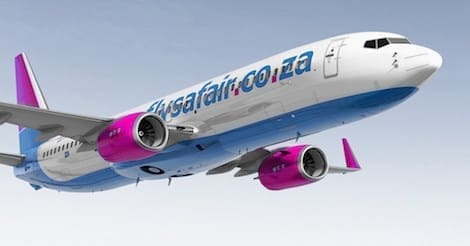What’s the one thing that people carry with them all the time? If you said a phone, you’d be correct. Whether it’s checking a shopping list in a supermarket, passing the time while waiting for takeaways or walking from the kitchen to the lounge in our own homes, there are few occasions when your smartphone is not with you.
Understanding consumer behaviour like smartphone habits is vital for the survival of any industry. Aviation is no different and has evolved with its customers’ needs with a mobile-first approach – something that is proving to be vital in a world fundamentally changed by COVID-19.
The introduction of electronic boarding passes is not entirely new and was rather a way of making the journey for travellers more convenient. Rather than unzipping hand luggage, patting pockets or emptying the contents of a handbag in search of a slip of paper, saving an electronic boarding pass on a phone offers passengers convenience and peace of mind. Once downloaded, all one needs to do is scan it at the boarding gate before the flight.
“We launched our WhatsApp boarding pass solution in late 2018 and it became incredibly popular, making the travel experience for our customers so much more convenient,” says Kirby Gordon, CMO at FlySafair. “Today, this small convenience has become invaluable in the wake of the pandemic as the demand for touch-free processes grows.”
In keeping with the call for a contactless experience, FlySafair no longer places hard copies of Inflight magazine in the seat pockets of each flight. Not wanting to take away from the experience of flipping through a magazine, passengers are rather encouraged to download the latest edition on their devices. This can be done via the FlySafair website.
Much of this technology is not new, but has rather been put to better use. By leaning into these readily available solutions a little more, the airline industry has been able to ensure the safety and wellbeing of travellers and staff.
Another example of this is the automation of daily operations to process large amounts of data.
“With travel coming to a halt as South Africa entered a hard lockdown in March, we opted to move quickly to address our customers’ concerns. We immediately ran scripts on our system to cancel all our passengers’ reservations and automatically generate vouchers for them, so that everyone had a clear store of value that could be used at a later stage.”
This solution seems obvious, but strangely was not common practice in the industry, with most airlines requiring customers to call in or send written requests to specific addresses. These claims are then processed manually with airlines advising customers to expect turnaround times of up to eight weeks, even for something as simple as a voucher for future use.
“Tech solutions like this help to keep our costs low and our customers happy. As it stands, we’re processing very few queries around lockdown cancellations at the moment because most of it has been dealt with thanks to our automated approach. Some airlines prefer the more manual process of call centres because the hope is that customers ultimately give up due to the rigmarole required to get their refund.”
At this stage, passengers are still legally required to complete and print out a health declaration form for the Port Health Authority before entering the airport. While this is something airlines have no control over, improving the ease-of-use can help make the customer experience more fuss-free. FlySafair provides all its customers with access to an editable PDF that they can fill in online and download. This is a screening requirement but aims to assist with track and trace processes too.
“By digitising this step, we’re making it easier for not only our customers, but health authorities too. Rather than sifting through piles and piles of forms, they have access to digital copies for contact tracing.”
When talking or writing about innovation and technology one often expects reviews on exciting mobile applications or virtual reality tools, but Gordon says that we often overlook the importance of the simple ways that current technological solutions can be used to solve basic problems.
“It’s always exciting to talk about a sexy new tech development, but sometimes these shiny bells and whistles can often lead to disappointment. If the company and its systems are not poised to tackle less exciting challenges, like managing health declaration forms or boarding passes, then this will only frustrate and inconvenience passengers.”
